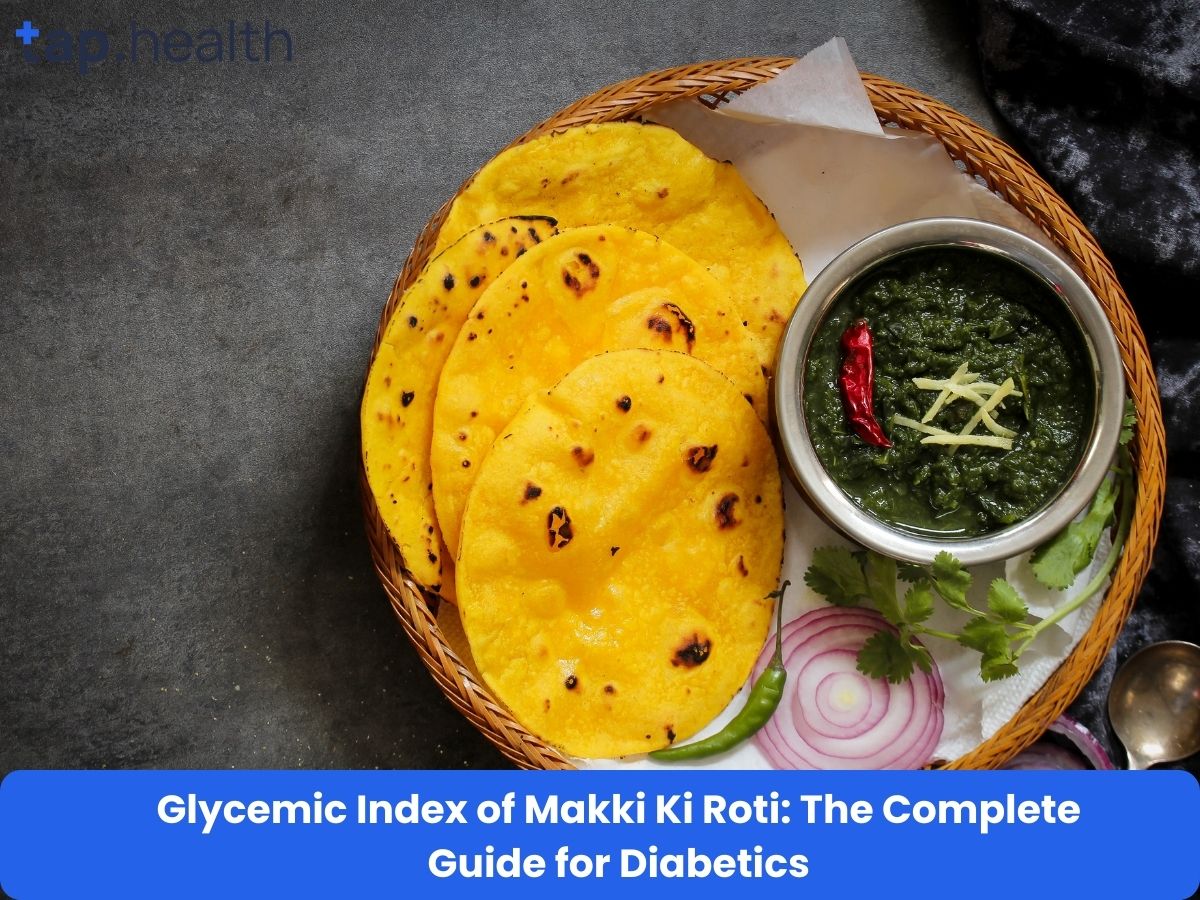Table of Contents
- Melatonin & Diabetes: Improving Sleep Quality
- Can Melatonin Supplements Regulate Blood Sugar?
- Melatonin, Diabetes, and Sleep: A Comprehensive Guide
- Understanding the Link Between Sleep, Melatonin, and Blood Sugar Levels
- Is Melatonin Safe for Diabetics? Dosage and Precautions
- Frequently Asked Questions
- References
Are you struggling with sleep problems and managing your diabetes? Many people with diabetes find that a good night’s rest is elusive, and that poor sleep can negatively impact blood sugar control. This blog post dives into the fascinating relationship between Melatonin and Diabetes: Understanding Sleep, Supplements, and Blood Sugar. We’ll explore how melatonin, a natural hormone regulating sleep, might influence your blood sugar levels, discuss the potential benefits and drawbacks of melatonin supplements, and offer practical tips for improving your sleep hygiene. Let’s uncover the connection between a restful night and better diabetes management!
Melatonin & Diabetes: Improving Sleep Quality
The Sleep-Diabetes Connection in Tropical Climates
Many individuals in India and other tropical countries experience disrupted sleep, often exacerbated by factors like high humidity and fluctuating temperatures. This is particularly concerning for those with diabetes, as research shows a significant link between the two. People with diabetes have a 70% increased risk of sleep apnea and related sleep disorders. Poor sleep quality, in turn, can negatively impact blood sugar control, creating a vicious cycle. Addressing sleep problems is therefore crucial for managing diabetes effectively in these regions. For a deeper understanding of the connection between diabetes and sleep disorders, please refer to our article on The Connection Between Diabetes and Sleep Apnea.
Melatonin: A Potential Aid?
Melatonin, a hormone naturally produced by the body to regulate sleep-wake cycles, is often considered as a sleep aid. While promising, it’s important to note that using melatonin supplements for diabetes requires careful consideration. It’s crucial to consult your doctor before starting any melatonin supplementation, especially if you are already taking other medications for diabetes or other health conditions. Improper use can potentially interact with your existing medications.
Practical Tips for Better Sleep
Beyond supplements, focusing on lifestyle changes can significantly improve sleep quality. In tropical climates, maintaining a cool bedroom temperature, using light, breathable bedding, and scheduling regular exercise (avoiding close to bedtime) can be particularly helpful. A consistent sleep schedule, limiting caffeine and alcohol intake before bed, and practicing relaxation techniques like meditation or deep breathing exercises are also valuable strategies. Remember, prioritizing sleep is an integral part of effective diabetes management. Consult your physician or a registered dietitian for personalized advice tailored to your specific needs and location. Learn more about the vital role of sleep in managing diabetes by reading The Importance of Quality Sleep in Managing Diabetes.
Can Melatonin Supplements Regulate Blood Sugar?
The relationship between melatonin and blood sugar is a complex one, particularly relevant in regions like India and other tropical countries where diabetes prevalence is high. While melatonin is primarily known for its role in regulating sleep, some research suggests potential links to blood sugar control. However, it’s crucial to understand that melatonin is not a replacement for prescribed diabetes medication or a healthy lifestyle.
Understanding the Potential Connection
Melatonin’s influence on blood sugar might be indirect. Studies have shown a correlation between poor sleep and increased risk of type 2 diabetes. Since melatonin helps regulate sleep, improving sleep quality could indirectly contribute to better blood sugar management. Remember that normal blood sugar levels are generally considered to be less than 140 mg/dL, while levels between 140–199 mg/dL indicate prediabetes, and 200 mg/dL or higher suggests diabetes. Improving sleep hygiene through consistent sleep schedules and a relaxing bedtime routine may be more impactful than solely relying on melatonin supplements. For more information on managing morning blood sugar spikes, check out Why Blood Sugar Spikes in the Morning and How to Manage Them.
Melatonin Supplements and Caution
While some preliminary research hints at a potential role for melatonin in improving insulin sensitivity, more robust studies are needed, especially within diverse populations like those in India and tropical regions. It’s essential to consult with your doctor or a qualified healthcare professional before taking melatonin supplements, particularly if you have diabetes or prediabetes. They can assess your individual needs and potential risks associated with melatonin use, especially considering any existing medications you might be taking. Self-medicating can be risky, and it’s crucial to prioritize a holistic approach to diabetes management.
Taking Action for Better Blood Sugar Control
In India and other tropical countries, prioritizing a balanced diet rich in fruits, vegetables, and whole grains, along with regular exercise, is paramount for managing blood sugar levels. These lifestyle modifications, combined with regular medical check-ups and adherence to prescribed medication, are far more effective and safer than relying solely on unproven supplements. Prioritize professional medical advice to ensure safe and effective blood sugar management. For comprehensive guidance on maintaining healthy blood sugar levels, refer to Blood Sugar Levels.
Melatonin, Diabetes, and Sleep: A Comprehensive Guide
Sleep disturbances are incredibly common among individuals with diabetes, impacting their overall health and well-being. This is particularly relevant in India and other tropical countries where factors like heat and humidity can further disrupt sleep patterns. A significant portion of the diabetic population, 61% of whom are aged between 20-64 years, and 39% aged 65+, experience these challenges. Data from the IDF Diabetes Atlas highlights the scale of this issue. Understanding the relationship between melatonin, diabetes, and sleep is crucial for effective management. For a deeper dive into the connection between sleep and diabetes, check out Does Sugar Diabetes Make You Sleepy? – Tap Health.
Melatonin and its Role in Blood Sugar
Melatonin, a hormone naturally produced by the body, regulates the sleep-wake cycle. Studies suggest a link between melatonin levels and blood sugar control, though more research is needed, especially in diverse populations like those in India and other tropical regions. Maintaining healthy sleep hygiene is paramount for managing blood sugar levels, and supplementing with melatonin, while potentially helpful for some, should always be discussed with a doctor, especially if you already have underlying health conditions. Self-medicating can be risky, and personalized advice is essential.
Improving Sleep for Better Diabetes Management
In the context of diabetes management in hot and humid climates, creating a cool and comfortable sleep environment becomes vital. Simple strategies like using light cotton bedding, ensuring good ventilation, and taking a lukewarm bath before bed can significantly improve sleep quality. Regular exercise, a balanced diet (consider regional variations and preferences), and stress management techniques such as yoga or meditation also play crucial roles in achieving better sleep and blood sugar control. It’s also important to understand the relationship between diabetes and obesity, as explained in Understanding the Link Between Diabetes and Obesity.
Seeking Expert Advice in India and Tropical Countries
For individuals with diabetes in India and other tropical countries, consulting a healthcare professional about melatonin supplementation and improving sleep hygiene is extremely important. They can provide tailored advice considering individual health conditions, lifestyle, and the specific challenges posed by the regional climate. Prioritizing sleep as a key component of diabetes management is essential for overall health and well-being.
Understanding the Link Between Sleep, Melatonin, and Blood Sugar Levels
Insufficient sleep is a growing concern globally, especially in densely populated Indian and tropical countries where stressful lifestyles are prevalent. This lack of sleep can significantly impact blood sugar control, increasing the risk of developing type 2 diabetes. A crucial factor in this relationship is melatonin, a hormone that regulates sleep-wake cycles.
Melatonin’s Role in Blood Sugar Regulation
Melatonin’s influence on blood sugar is complex. Studies suggest it may improve insulin sensitivity, helping your body use insulin more effectively. Poor sleep, however, disrupts melatonin production, leading to insulin resistance—a key characteristic of diabetes. This resistance makes it harder for your body to process glucose, resulting in elevated blood sugar levels. The impact is amplified when combined with other risk factors, such as the high consumption of sugary beverages. Daily consumption of sugary beverages raises diabetes risk by 26%, exacerbating the negative effects of sleep deprivation and melatonin imbalance.
Practical Tips for Better Sleep and Blood Sugar Control
Maintaining healthy sleep habits is crucial for managing blood sugar, especially in hot and humid climates where sleep can be disrupted. Prioritize a consistent sleep schedule, create a relaxing bedtime routine, and ensure your bedroom is dark, quiet, and cool. Consider incorporating stress-reduction techniques like yoga or meditation into your daily routine. While melatonin supplements are available, it’s essential to consult a doctor before using them, particularly if you have pre-existing health conditions or are taking other medications. Remember, a balanced diet, regular exercise, and adequate sleep are fundamental to preventing and managing diabetes. For further insights into how sleep impacts your overall health and nutritional choices, read our article on The Impact of Sleep Quality on Nutritional Choices – Tap Health.
Seeking Regional Expertise
For personalized advice tailored to the specific challenges of managing diabetes in Indian and tropical climates, consult a healthcare professional familiar with the regional context. They can provide guidance on dietary adjustments, lifestyle changes, and appropriate management strategies to optimize your health and well-being. It’s also important to understand the connection between weight management and blood sugar levels. Learn more by reading our article on Weight Loss and Blood Sugar Levels: Simple Connection Explained.
Is Melatonin Safe for Diabetics? Dosage and Precautions
Understanding Melatonin and Blood Sugar
Many individuals in India and other tropical countries experience sleep disturbances, often exacerbated by underlying health conditions like diabetes. Melatonin, a hormone naturally regulating sleep-wake cycles, is frequently considered as a sleep aid. However, its interaction with diabetes requires careful consideration. While melatonin itself doesn’t directly impact blood sugar levels in the same way as, say, insulin, its indirect effects warrant attention. Some studies suggest potential interactions with medications commonly used to manage diabetes.
Dosage and Considerations for Diabetics
The recommended melatonin dosage varies significantly, and there’s no universally agreed-upon amount for diabetics. Generally, lower doses (around 0.5-3mg) are a good starting point. Always consult your doctor or a qualified healthcare professional in India or your specific region before starting any melatonin supplementation, especially if you have diabetes. They can help determine an appropriate dosage based on your individual health status and medication regimen. Remember, managing diabetes effectively often involves maintaining a balanced diet, including carbohydrate control. A typical recommendation for mealtime carbohydrates is 45-60 grams, but this can vary considerably based on individual needs. Melatonin should be viewed as a supplemental approach and not a replacement for proper diabetes management. Choosing the right What is a Good Bedtime Snack for Diabetics? can also be important for blood sugar control.
Precautions and Potential Risks
Individuals with diabetes should be particularly cautious about potential side effects. These may include drowsiness, headaches, and digestive issues. Interactions with other medications are also a concern. It’s crucial to inform your doctor about all medications and supplements you are taking, including melatonin, to avoid any adverse reactions. In India, accessing reliable healthcare advice is paramount. Don’t hesitate to seek professional guidance before making any changes to your health routine. Remember, responsible supplementation is key to maintaining overall well-being. Before taking any over-the-counter medication, it’s wise to check if it’s suitable for diabetics. For example, you might want to read our article on Can a Diabetic Take Robitussin?
Frequently Asked Questions on Melatonin & Diabetes: Sleep, Supplements & Blood Sugar
Q1. Does melatonin help with sleep problems in people with diabetes?
While melatonin may improve sleep, its effect on blood sugar in diabetics is indirect and requires careful consideration. It’s not a substitute for proper diabetes management.
Q2. What are the main factors affecting sleep quality in diabetics, especially in hot climates?
High temperatures and humidity, coupled with poor blood sugar control, commonly disrupt sleep in diabetics, particularly in tropical regions like India.
Q3. Besides melatonin, what lifestyle changes can improve sleep for diabetics?
Maintaining a cool bedroom, regular exercise (not close to bedtime), and a consistent sleep schedule are crucial for better sleep. A balanced diet is also essential.
Q4. Is it safe to take melatonin if I have diabetes?
No, self-medicating with melatonin is risky. It could interact with diabetes medications. Always consult your doctor before taking melatonin or any supplement.
Q5. What’s the most effective way to manage diabetes and improve sleep?
Effective diabetes management involves a holistic approach combining prescribed medication, a healthy balanced diet, regular exercise, and maintaining a consistent sleep schedule. Consulting your doctor is crucial.
References
- A Practical Guide to Integrated Type 2 Diabetes Care: https://www.hse.ie/eng/services/list/2/primarycare/east-coast-diabetes-service/management-of-type-2-diabetes/diabetes-and-pregnancy/icgp-guide-to-integrated-type-2.pdf
- Children with Diabetes : A resourse guide for families and school. : https://www.health.ny.gov/publications/0944.pdf



